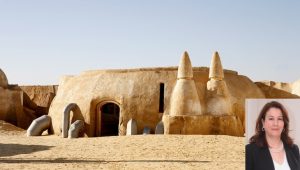ISRAEL – Land of History, Culture, and Innovation
A fascinating country with a rich history, diverse landscapes, and a vibrant culture, Israel is a marvel throughout. The breathtaking beauty of its hills and valleys, the peculiar stillness of the Dead Sea, the ancient walls and pathways of Nazareth and Jerusalem, and the multi-hued canyon of Makhtesh Ramon, draw millions of tourists every year. The country is also worth a visit for its innovative, modern cities
By His Excellency H.E. Ms. Orna Sagiv, Ambassador of Israel to Thailand and Non-resident Ambassador to Cambodia
Israel is a country of great historical and cultural significance. Situated at the crossroads of Europe, Asia, and Africa, it is home to a wealth of religious and historical sites, as well as stunning natural landscapes and a vibrant modern culture. From the ancient city of Jerusalem and the beaches of Tel Aviv to the snowy Mount Hermon in the north and the Judea Desert in the south, Israel offers a unique and diverse travel experience that is sure to leave a lasting impression.
A Window into the Past
Israel is a land steeped in history, with evidence of human habitation dating back thousands of years. The country is home to a wealth of archaeological sites, museums, and historical landmarks that offer visitors a glimpse into the past.
One of the most famous historical sites in the world is Jerusalem, Israel’s capital city. Considered holy by Jews, Christians, and Muslims, this ancient city is home to many religious landmarks such as the Western Wall, the Church of the Holy Sepulcher, and the Dome of the Rock. A visit to Jerusalem is a journey through time, with ancient ruins and monuments coexisting alongside modern buildings and bustling markets.
Another must-see historical site in Israel is Masada, an ancient fortress situated atop a cliff overlooking the Dead Sea. Masada was the site of a famous Roman siege in the first century AD, and today it is a UNESCO World Heritage Site and one of Israel’s most popular tourist attractions.
One cannot speak about Israel’s tourism without mentioning a world-renowned tourist destination, the Dead Sea. While most people are used to seeing visitors floating in the waters, the Dead Sea is also a great place to relax and rejuvenate in luxurious spas and resorts that offer a range of treatments, including mineral-rich mud wraps, massages, and salt scrubs.
A visit to Yad Vashem, the Holocaust memorial and museum, is a must. It features a powerful collection of exhibits and artifacts that tell the story of the Holocaust, as well as a memorial to the six million Jewish victims.
Beyond its rich history, Israel is also home to a vibrant modern culture that is influenced by its diverse population. Tel Aviv, the country’s financial and tech hub, is known for its cosmopolitan atmosphere, modern architecture, and vibrant nightlife. The city is also home to many museums, galleries, and theaters that showcase Israeli art and culture. Recently, Tel Aviv has been included in CNN’s list of top 10 best cities for bicycling in the world.
The Taste of Diversity
Israeli cuisine is a perfect blend of diverse culinary traditions, influenced by the many cultures and communities that have made their homes in the region. Jewish, Arab, Mediterranean, Eastern European, and North African cuisines have all left their mark on Israeli cuisine, resulting in a unique fusion of flavours, ingredients, and cooking styles. From hummus and falafel to shakshuka and schnitzel, Israeli cuisine offers a delicious taste of the region’s diverse culinary heritage.
Speaking of food, Israel has become a hub for FoodTech innovation, with a growing number of start-ups and companies developing innovative solutions to address the challenges of feeding a growing global population sustainably. Israeli FoodTech companies are exploring cutting-edge technologies such as vertical farming, protein alternatives, and precision agriculture. With a combination of technology and entrepreneurial spirit, Israeli FoodTech is poised to make a significant impact on the future of food production and sustainability.
Where Innovation meets Sustainability
Israel is a country that has long been at the forefront of innovation and technology. This culture of innovation is not limited to the technology sector but is reflected in many aspects of Israeli society, including the tourism industry. With its range of attractions and experiences, the nation has become a leading destination for travellers seeking sustainable and innovative tourism experiences.
One of the key areas of innovation in Israeli tourism is the use of technology to enhance the visitor experience. Many tourist attractions have adopted augmented and virtual reality (AR and VR) technologies to provide an immersive and interactive experience to visitors. These technologies are used to bring historical and cultural sites to life, giving visitors a deeper understanding of the significance of these locations. For example, the Tower of David Museum in Jerusalem uses VR technology to give visitors a glimpse into the city’s history. Its Night Spectacular show uses 3D projection mapping to illuminate the ancient walls of the citadel, creating a mesmerising display of light and sound that tells the story of Jerusalem’s past.
In addition, Israel is home to a thriving start-up ecosystem that is developing innovative solutions to improve the tourism industry. Many of these start-ups are focused on sustainable tourism practices, including eco-friendly accommodations, responsible tourism experiences, and sustainable transportation.
A great example is a Tel Aviv-based start-up that is developing a sustainable tourism application to help tourists find eco-friendly hotels, restaurants, and attractions. The app uses crowd-sourced data to identify businesses and destinations that prioritise sustainability and environmental responsibility. Another start-up is developing a platform that connects travellers with local guides who can provide personalised tours and experiences. The platform is designed to support local communities and promote sustainable tourism practices by offering authentic and immersive experiences.
Another example of innovation in the tourism industry is in the development of niche travel experiences. Medical tourism, for instance, is a growing trend in Israel, with visitors coming to the country for specialised medical treatments such as fertility treatments, cancer care, and cosmetic surgery.
Alongside the technological advancement, Israel’s commitment to sustainability plays a key role in the tourism industry as well. The country has made significant strides in recent years to promote sustainable tourism practices, including the development of eco-friendly accommodations, the adoption of renewable energy sources, and the promotion of responsible tourism practices. For example, a relatively new hotel located in the southern city of Mitzpe Ramon is a model of sustainable tourism. The hotel is built from locally sourced materials and uses solar panels to generate electricity. It also offers sustainable tourism experiences, including guided hikes and desert treks that promote environmental awareness and appreciation.
The city of Eilat best demonstrates Israel’s commitment to sustainability. This southernmost tip of the country has been designated as a “green city” by the Israeli government. Eilat implements a range of sustainable tourism practices, including the use of renewable energy sources, the promotion of eco-friendly accommodations, and the development of responsible tourism practices.
From beaches to historical sites, Israeli innovation, along with the implementation of universal design, has made most attractions accessible for all. Wheelchair users can easily reach the beach through an accessible trail and if they are up to some activities, they can row a boat in a wheelchair. The biggest oasis in Israel, Ein Gedi, is also wheelchair-accessible. The Underwater Observatory Marine Park in Eilat provides personal guidance to the visually impaired people.
In conclusion, Israel offers a unique blend of history, culture, and innovation, and its tourism destinations promise visitors, including those with disabilities, memorable experiences. From AR-enhanced historical sites to natural wonders and cultural destinations, the country has something for everyone.















